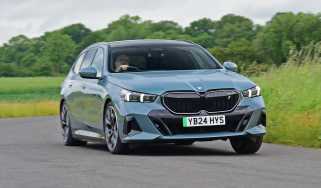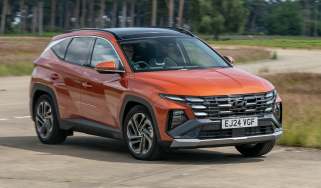Rise of electric cars to bring £5bn Govt tax shortfall
Increasing popularity of low tax electric cars will cause major funding problems for the Government in the future
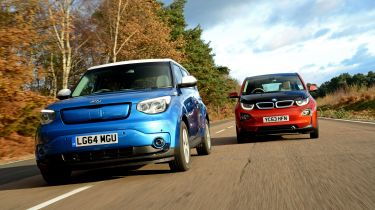
The UK Government is facing a near-£5billion shortfall in 2030 from lost fuel duty if the growth of battery electric vehicles continues, according to exclusive Auto Express calculations.
We’ve crunched the numbers based on the current fuel duty paid to HM Treasury and the projected uptake of pure electric vehicles to reveal the amount Government will lose out on over the next 15 years.
In 2020, the Government will have a £213million-a-year shortfall, and that will rise to £4.8billion in 2030, when academic research predicts there will be 5.9 million battery-powered cars and vans on UK roads.
The projections are based on the Government target to reduce emissions by 80 per cent by 2050 in a report by consultant Ecolane and the University of Aberdeen for the Committee on Climate Change.
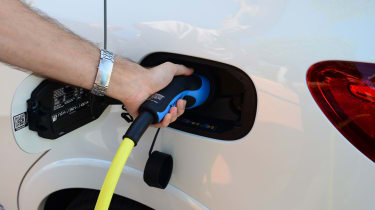
It’s backed up by the latest Go Ultra Low figures, which show total charging volumes have tripled since 2014 and 90 per cent of EVs (including hybrids) are charged at home.
Dr Ben Lane, director of Ecolane and one of the researchers, said: “The Government knows there’s a problem and it’s part of the thinking behind realignment of VED bands.
“My view is that road charging will be inevitable and what makes that even more possible is the connected car. Within a couple of years we will know where a significant proportion of vehicles are.”
Other solutions posed by economists include charging electric vehicle buyers an extra fee to account for the lost revenue, taxing petrol or diesel higher or setting up a tax on electricity using smart meters.
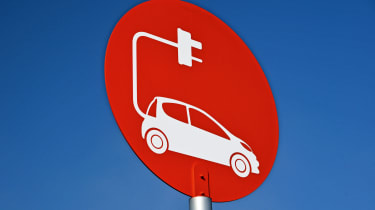
Steve Gooding, RAC Foundation director, said: “Greener cars are a challenge for the Treasury. The time will come when George Osborne stops letting eco-friendly vehicles off the hook and starts to tax them.
“The beauty of fuel duty is it’s simple to collect. Other methods are likely to cost more to run. Ministers will also fear a backlash from the country’s 37 million drivers if they perceive a new system as a way of taking more money off them.”
Electric vehicles & fuel duty in numbers:
| £26.9bn | Total paid in fuel excise duty to HM Treasury in 2013/14 |
| 5,910,000 | Projected number of battery-powered cars and vans on UK roads by 2030 |
| £213m | Estimated total excise fuel duty shortfall HM Treasury faces in 2020 |
| £4.88bn | Predicted shortfall in fuel duty in 2030 based on battery car and van projections |
Find a car with the experts

